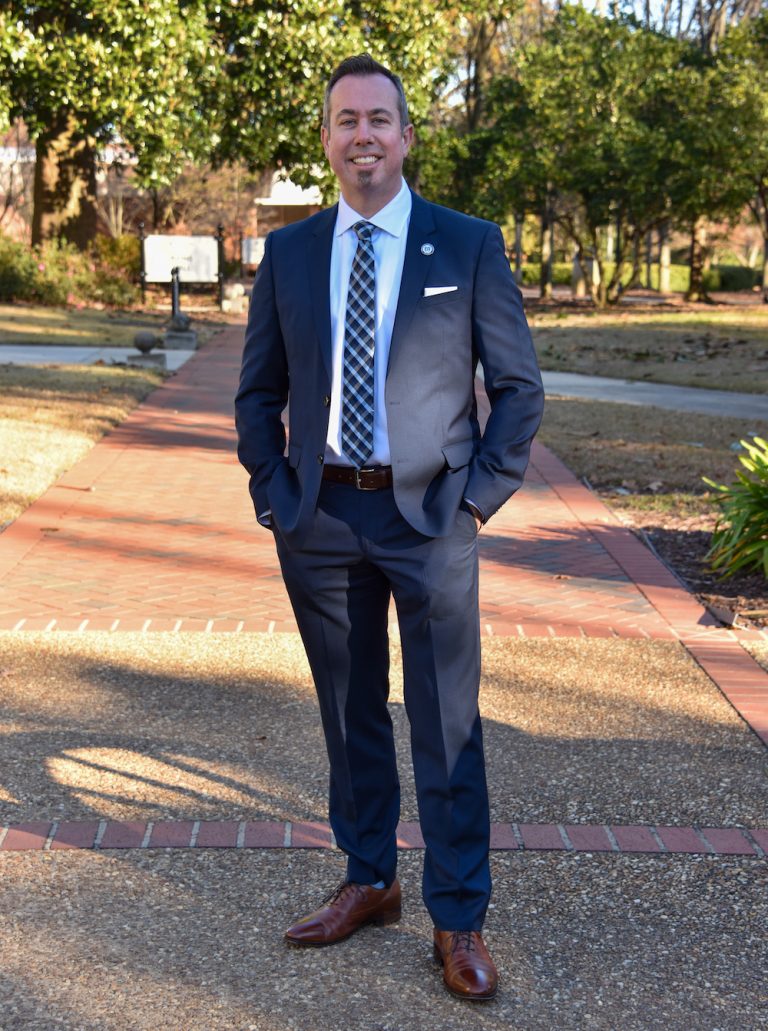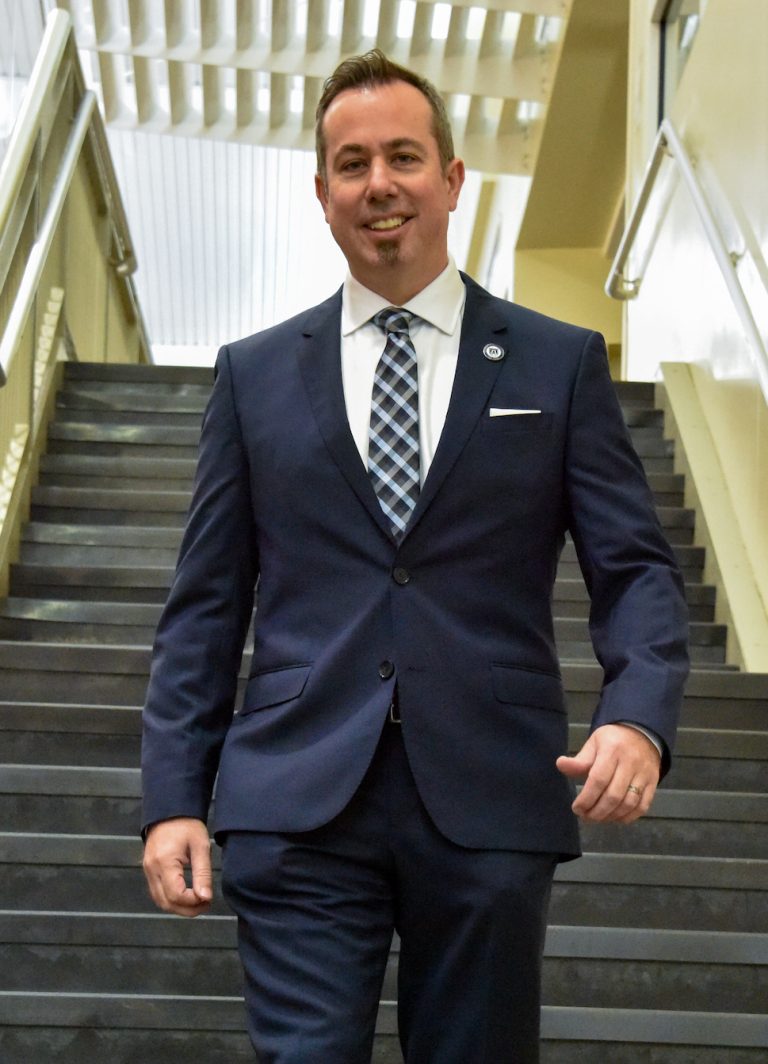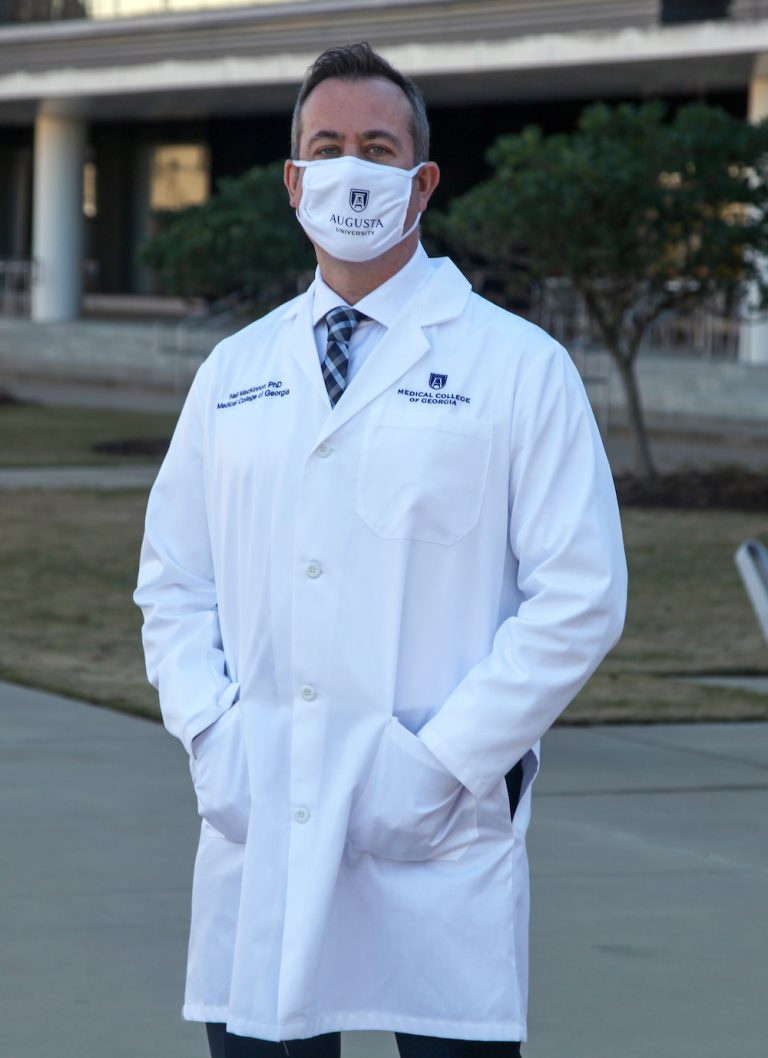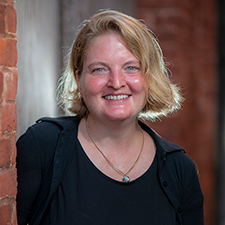As Dr. Neil J. MacKinnon prepares to begin his new role as provost and executive vice president for academic affairs at Augusta University, he is eager to get to know the students, faculty and staff across the Summerville, downtown and Health Sciences campuses.
The former dean of the James L. Winkle College of Pharmacy at the University of Cincinnati says he cannot wait to be a part of the Augusta University family.
“I realize a lot of people don’t even know what a provost is or they’re seen as some mysterious figure, but my goal here at Augusta University is to be approachable,” said MacKinnon, who starts his role Jan. 19. “I want people to know me and feel comfortable talking with me.”
MacKinnon has an impressive background, serving as dean for the past seven years at the fourth oldest pharmacy school in the country and working as director of the Center for Rural Health at the University of Arizona from 2011-13. However, he has an equally fascinating personal life.
In fact, don’t be surprised to see him occasionally donning a kilt, he joked.
“I grew up in Nova Scotia, Canada, which Nova Scotia actually is Latin for new Scotland. Most people there have Scottish heritage and I’ve owned and worn a kilt for years,” MacKinnon said, adding he just finished serving as vice chair of the worldwide association for the MacKinnon family for the past four years. “I met my wife, Leanne, in Florida and we now have three teen daughters: Breagh, 16, and twins Ashlynn and Kaylee, who are 14.”
MacKinnon was beaming as he quickly flipped through several photos of his family on his phone.
“While they’ve done everything from ballet to hip-hop to studio dance, all three girls do a sport called Scottish highland dancing,” he explained. “We’ve traveled to Scotland for the World Highland Dancing Championship, where all three girls have competed. So, I’m a proud dance dad.”
His oldest daughter, Breagh, is a three-time U.S. national champion in the sport. A Canadian fashion designer named Veronica Maclsaac, who celebrates the country’s Celtic culture, even designed a dress named after Breagh, MacKinnon said.
“I think Breagh was 13 years old at the time, so for a 13-year-old girl to have a dress named after her was incredible,” MacKinnon said. “I always joke that Breagh is way more famous than I am.”
Much like his enormous pride in his family’s accomplishments, MacKinnon said he is looking forward to promoting Augusta University’s outstanding achievements in his new role as provost.
“The provost is the chief academic officer of the university. Therefore, the provost needs to be a mouthpiece and the strongest advocate for the academics of the university,” MacKinnon said.
“I want to help raise the profile of the university and make sure that we’re telling people the impact we are having in new research, clinical care, non-health care research and cyber.”
Augusta University is the “hidden gem” of the Southeast and he intends to vigorously promote its strengths, MacKinnon said.
“I think people here at Augusta University are humble, and that’s a good quality to have, but there are also times when you want to brag about what you’re doing,” he said. “And AU has a lot to brag about, and I intend to tell others about the impressive things happening here.”

Augusta University President Brooks A. Keel, PhD, said MacKinnon’s experience and past leadership made him the clear choice to serve as the new provost.
“Dr. MacKinnon has an accomplished record in public health, research and academic program development, as well as a strong commitment to diversity and inclusion,” Keel said. “Neil’s vision and values align well with Augusta University’s mission to serve all of Georgia as the state’s only public academic medical center. He has a deep understanding of and appreciation for the importance of comprehensive undergraduate programming and enrollment management.
“His leadership will serve us well as we continue to navigate the challenges of the COVID-19 pandemic and keep us moving toward our goal of 16,000 students by 2030 and growth in our research program.”
At the University of Cincinnati, MacKinnon led the college to unprecedented student enrollment in fall 2020, due to the creation of nine new graduate certificates/degree programs since 2013. He also oversaw a $34 million building renovation for the college and completed the largest one-time hire of new faculty positions in the college’s 170-year history.
“During the last three years at University of Cincinnati, we created three new programs of bachelor’s/master’s dual degree programs: two with arts and sciences and one with engineering,” MacKinnon said. “Those are the sorts of moves that you can do at a comprehensive university like Augusta University. You can get colleges to work together to offer something unique.
“That is something I’ll be asking the deans here to look at, especially with President Keel’s goal to grow to 16,000 students by 2030. One way we can do that is take existing courses, repurpose them, be creative and create new dual degrees.”
Such dual degrees can be appealing to new students considering enrolling in Augusta University, he said.
“When students come here, they’ll see, ‘Wow, I could graduate in five years with a bachelor’s and a master’s degree,’” MacKinnon said. “That could be a real win for students and it also gets faculty working together across colleges too, which has many additional benefits.”
Under MacKinnon’s leadership, the James L. Winkle College of Pharmacy at the University of Cincinnati set all-time records for the percentage of faculty, staff and students who are under-represented minorities. He also created a new position for the college, hiring a director of diversity and inclusion.
“For the last seven-plus years at the University of Cincinnati, one of our main focuses was enhancing diversity,” MacKinnon said. “We wanted to make sure that our student demographics really represented the community that we lived in.”
The university began partnering with high schools and introduced a summer bridge program to help minority students transition to college life, he said.
“At the end of the day, we fortunately saw a lot of success,” MacKinnon said. “About 8% of the student body is African American at the University of Cincinnati. When I became dean of the College of Pharmacy, only 5.7% of the student body was African American. This year, the College of Pharmacy is at 14.9%. We actually had the highest percent African American student enrollment of any college at the university. We went from being below the university’s average to being the leader.”
As a result of those efforts, the James L. Winkle College of Pharmacy received the Higher Education Excellence in Diversity (HEED) Award in 2018, 2019 and in 2020. It was the only pharmacy school in the country to receive this award in all three years.
“I’m very proud of that accomplishment,” he said. “And I know that’s a goal here at Augusta University, too, so that will be a priority of mine as provost.”
MacKinnon was also was voted by his peer deans at the University of Cincinnati to serve as the chair of an organization called the Council of Deans for the past several years.
“In that role, you serve on the president’s cabinet and you are a liaison between the deans and the provost,” he said. “For me, it was like a dean among deans. And just like Augusta University, the University of Cincinnati is a very comprehensive university, so I was working with deans of business, education and arts and sciences. It was not just health care, which I think is important.”
MacKinnon’s educational background includes a PhD in Pharmacy Health Care Administration and fellowship from the University of Florida; a Master of Science in Hospital Pharmacy and residency from the University of Wisconsin, Madison; and a Bachelor of Science from Dalhousie University in Nova Scotia. He is dedicated to promoting and supporting all of the colleges at Augusta University.
“AU, obviously, is the state’s only public academic health center and that’s a very special calling,” he said. “But the fact that it’s also a comprehensive university with the Summerville campus, and now, of course, with the cyber campus as well, that really creates special bonds and unique opportunities that only strengthen the university.”
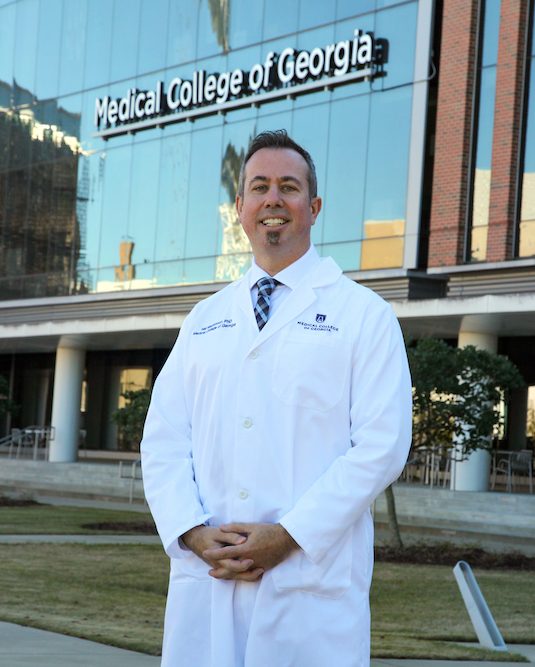
While at the University of Cincinnati, MacKinnon learned the value of working with a variety of colleges when he co-chaired a task force on the opioid crisis. According to the Centers for Disease Control and Prevention, Ohio has the second-highest rate of deaths by overdose in the country, so MacKinnon wanted to help address the problem.
“It was a task force between the university and UC Health, which is just like AU Health,” MacKinnon said. “We had about 70 faculty clinicians that were part of that effort, but we also had faculty that were part of the task force from our College of Arts and Design and the College of Education. So, it wasn’t just the health colleges.”
In fact, MacKinnon teamed up with the Department of Geography to map and follow the opioid crisis in Ohio.
“You wouldn’t think that geography and pharmacy would partner together, but we were looking at the spread of the opioid crisis. And so, one geographer, Dr. Diego Cuadros, was able to look at Global Positioning System mapping for our research to accurately track the crisis,” MacKinnon said. “Then, when COVID-19 hit in March of this year, Diego asked, ‘I wonder if we could apply the same tracking that we’ve used for the opioid crisis and apply it to the spread of COVID-19?’ Sure enough, we did.”
Their COVID-19 tracking efforts attracted the attention of the governor of Ohio, MacKinnon said.
“We had several publications this past year that looked at the spread of COVID, so we created short summaries of our research called policy briefs, which were really two-pagers about COVID-19,” he said. “We prepared three policy briefs this past year for the governor in Ohio and the head of the Department of Health. It was really cool because we were providing valuable information to the governor and his senior staff that they were able to effectively convey to the public.”
The governor even used a map with the information collected by the team at the University of Cincinnati during a COVID press conference, MacKinnon said.
“To me, that’s the strength of research,” he said. “It’s not just some theoretical thing that we do to get funding. We’re trying to solve real-world problems. And if you think about this past year, it doesn’t get much more practical and real-world than COVID-19.”
MacKinnon will be looking for similar opportunities for colleges to work together at Augusta University.
“I know there’s the physical difference of the Summerville and the Health Sciences campuses, but one way to bridge that is to create common interests that will unite people against something like the opioid crisis,” he said. “A crisis like that can impact a lot of areas, so I will be looking for those common themes here as well.”
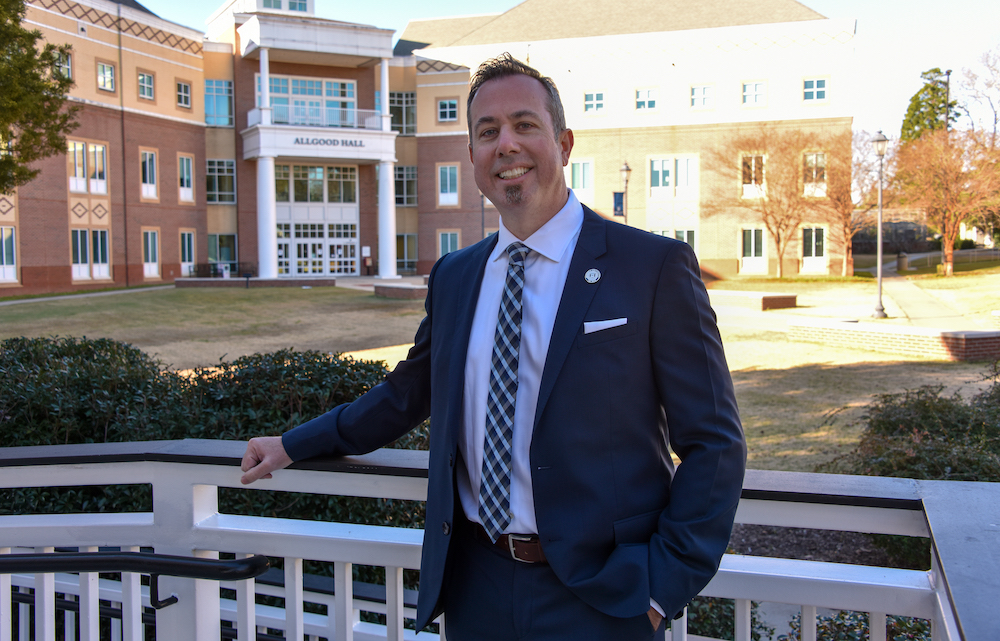
Augusta University uses what is informally known as a super-provost model, which means the office is in charge of all academic affairs, the colleges, the deans, the research enterprise, student affairs and enrollment management, among other things. MacKinnon said he looks forward to leading the charge to increase student enrollment and expand research opportunities across all the campuses at Augusta University, he said.
“I know AU actually just came off of a fantastic year of research, and obviously President Keel wants to continue that upward trajectory,” MacKinnon said. “As the dean of the College of Pharmacy at UC, our research funding doubled. I even kept my own research program, to be a role model to my faculty. So, in the seven years as dean, I had 50 peer-reviewed publications.”
In fact, MacKinnon’s fourth book about his research on the opioid crisis will be published later this year. MacKinnon wants to keep that research momentum going at Augusta University.
“I have asked President Keel if it would be OK if I had a research program here, and he has agreed to that,” he said. “That’s very important because I believe research enterprise is what sets some universities apart.”
MacKinnon also hopes to help combat Georgia’s health care crisis in rural communities. Georgia ranks among the 10 worst states for most health measures, with some of the highest incidents of stroke, heart disease and cancer in the nation. To make matters worse, much of the state lacks access to primary care services, making Georgia worse than the national average for areas with a shortage of primary care doctors.
As a result, the Medical College of Georgia has developed a 3+ Primary Care Pathway that will help place doctors where they are needed most in the state. This pathway shortens the traditional MD curriculum to three years instead of four and will provide free tuition or student loan forgiveness to students who commit to a primary care residency and agree to serve in an underserved area for six years.
“As the state of Georgia’s only public academic health center and a leader in health care policy, Augusta University and the Medical College of Georgia are committed to improved health for all Georgians,” Keel announced last year. “That statewide commitment is evidenced in the patients we treat, the education we provide and the research solutions we develop.”
In his role as director of the Center for Rural Health at the University of Arizona, MacKinnon was dedicated to improving access to high-quality, cost-effective health care to the 900,000 residents of rural Arizona.
“In our office, we were recruiting physicians to small towns and we were working with county public health offices, first responders and emergency medicine to help serve Arizona residents who didn’t have access to primary care,” MacKinnon said. “The reality is it’s often hard to recruit health professionals to rural areas.
“But, fortunately, I had some valuable lessons learned from my experience in Arizona that I look forward to bringing here. I’m ready to get started.”
